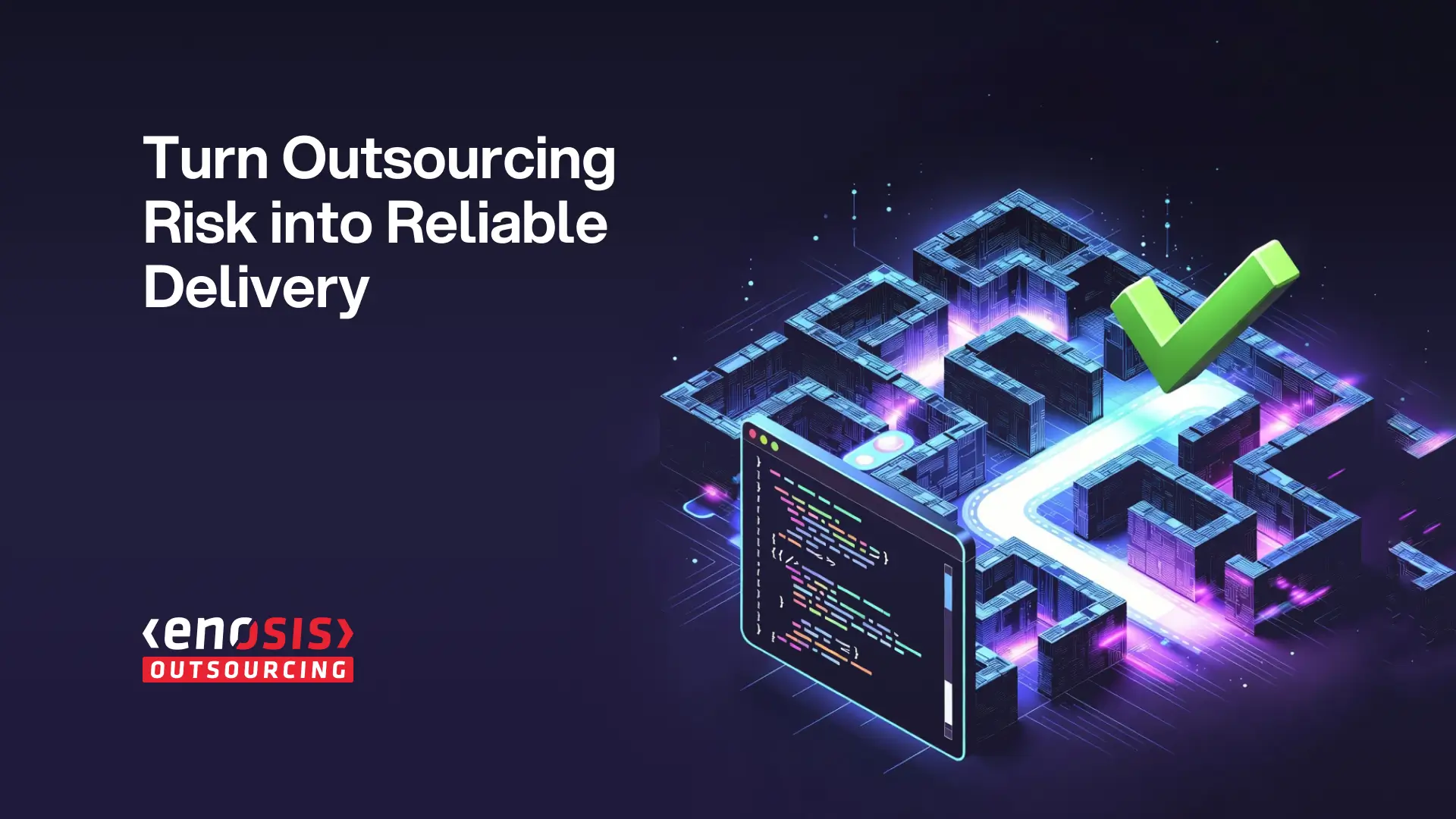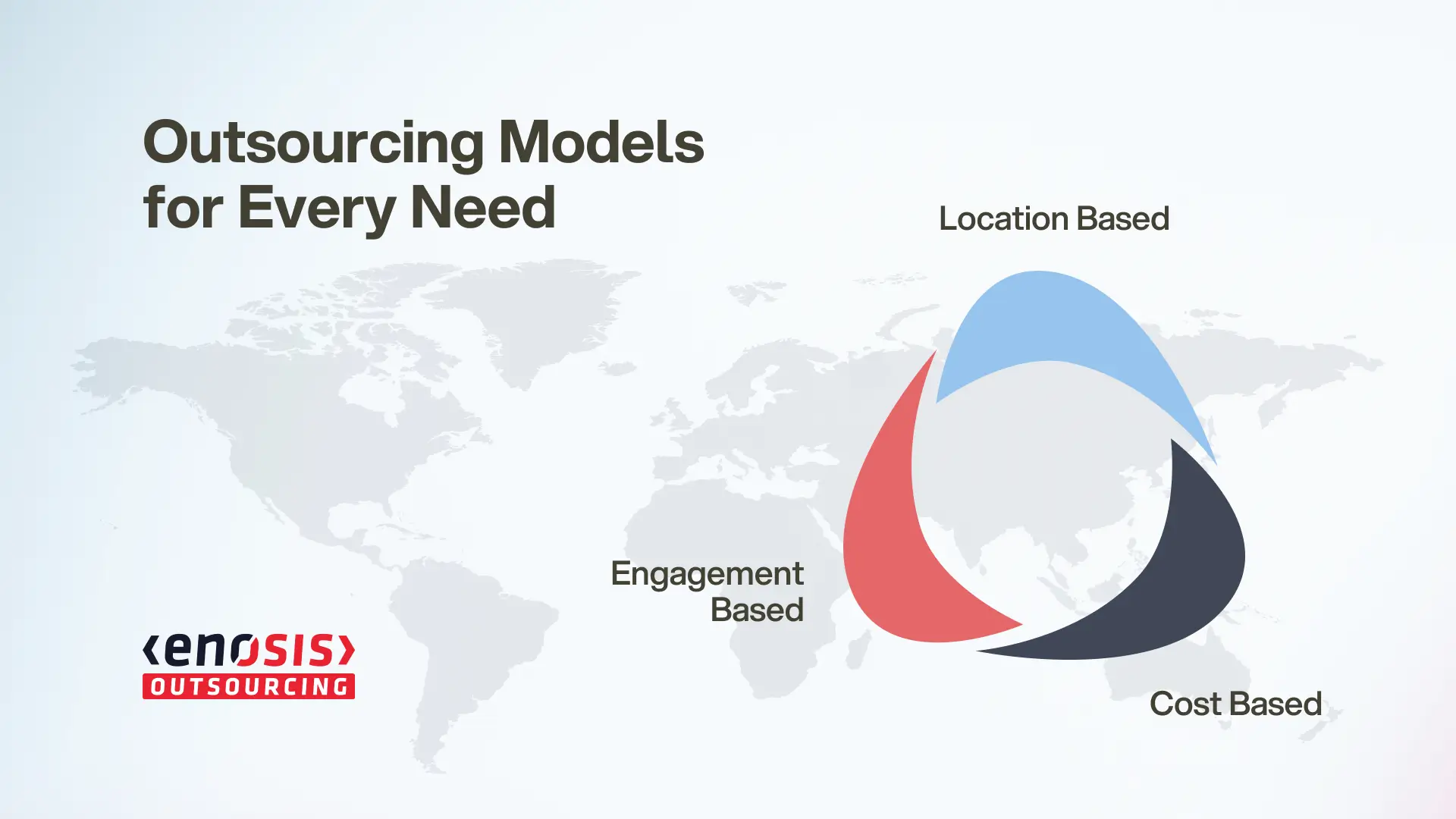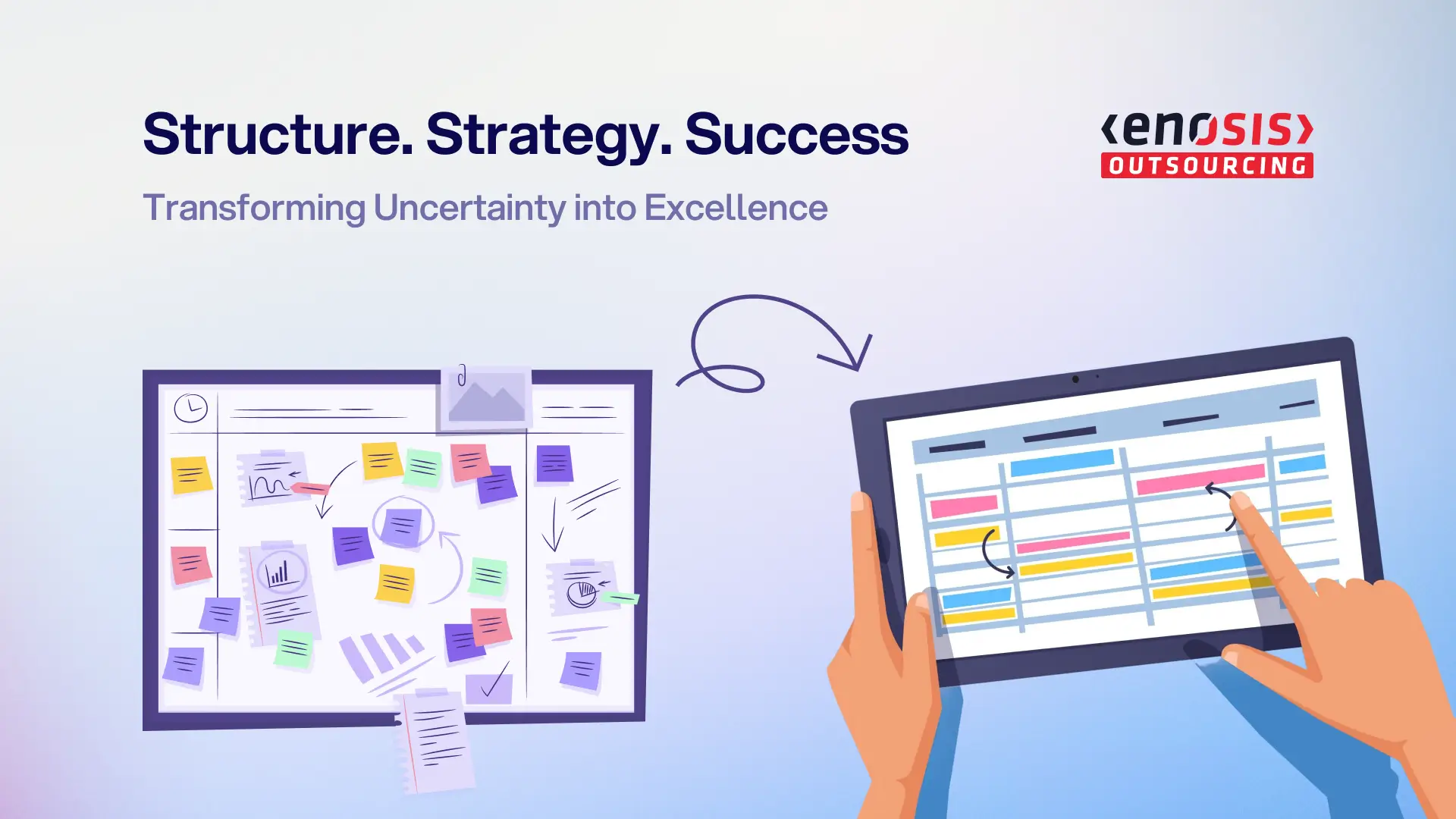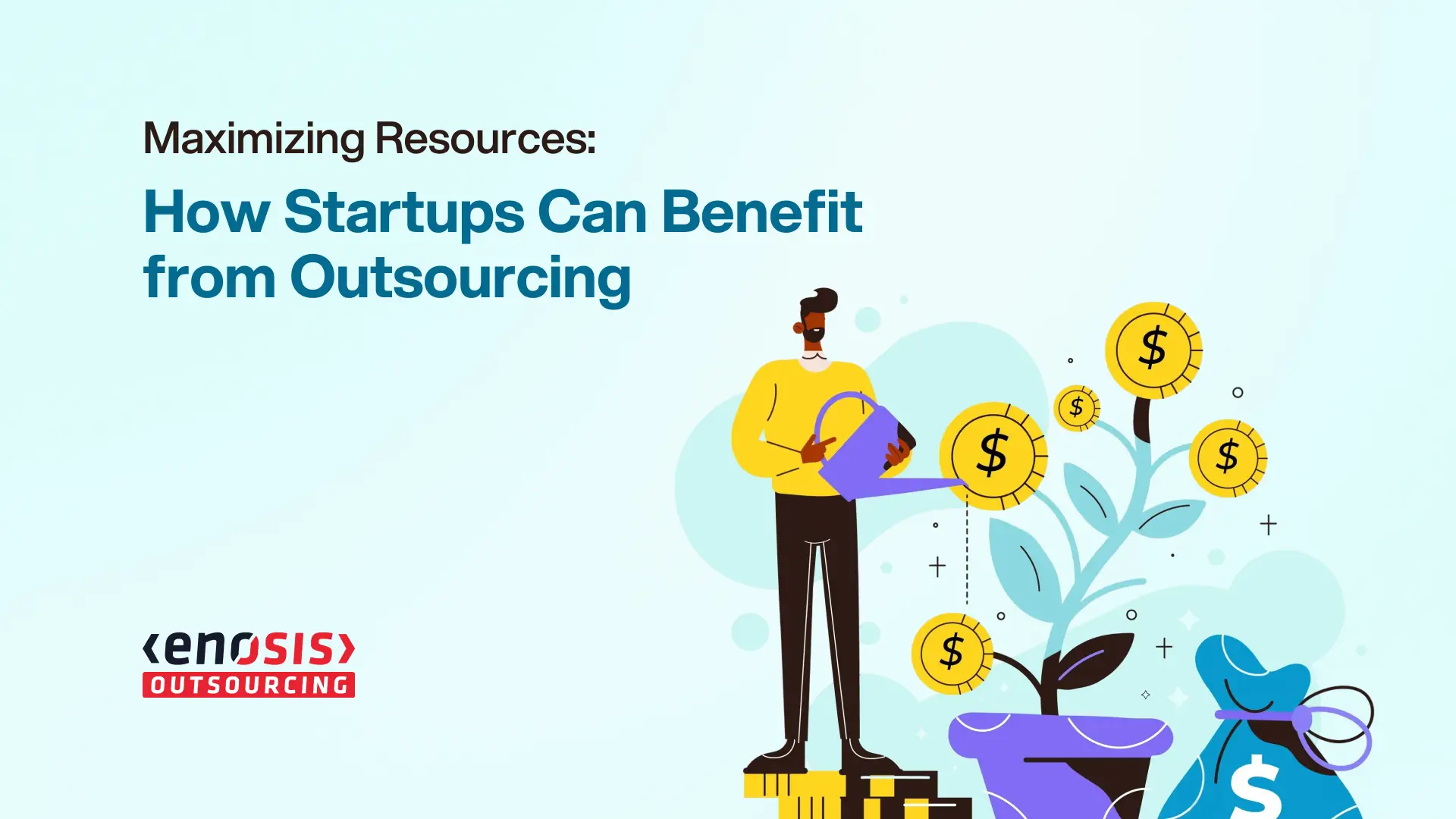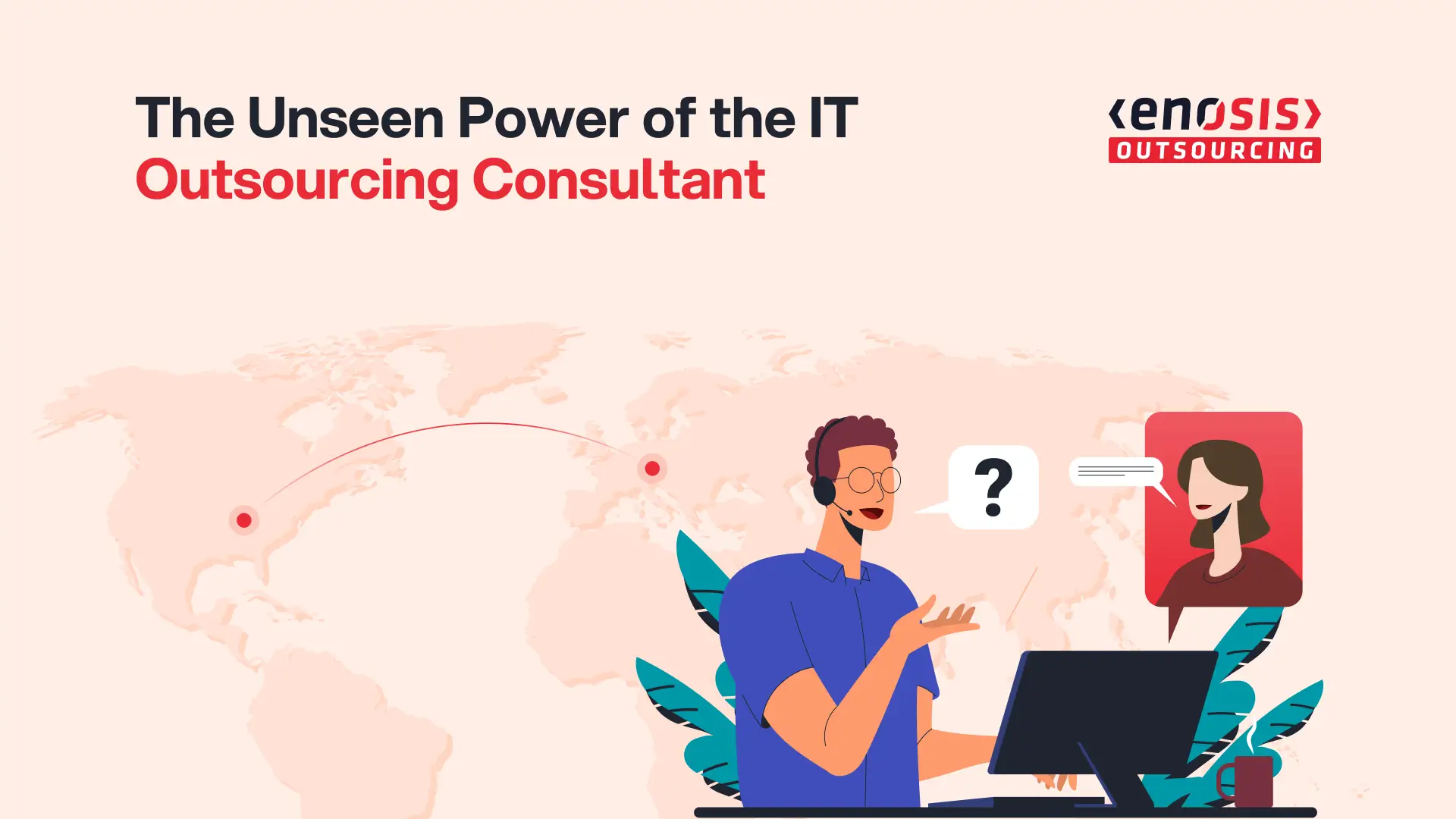Post Activity
 38
38
Table of Contents
Share This Post
Table of Contents
Every startup begins with a bright idea and a sense of urgency. Turning that idea into a working product takes time, talent, and capital. Most founders bring one or two of these to the table. Outsourcing steps in to fill the gaps without draining your efforts. You do not need a big in-house team to launch your product. Outsourcing can help you with smart leverage here.
So with time, outsourcing software development for startups has become a go to growth strategy. Unfortunately, it is not entirely risk free. Many beginner companies waste months (and buckets of cash) cleaning up vendor screw-ups instead of shipping to happy early users. Some lose grip on their IP, blow past deadlines, or watch their product vision get watered down.
This guide breaks down the most common pitfalls startups face when outsourcing and how to sidestep them like a professional.
The Startup Reality in the United States
Speed decides the winner in the American market. You are competing with well funded rivals who lose patience very fast. Building an in house team in cities like San Francisco, New York, Austin, or Seattle can take several months and be costly. Outsourcing is capable of filling that gap. With that, you have immediate access to vetted engineers, designers, and QA specialists turning concepts into MVPs in weeks instead of endless quarters.
Many founders match US hours with nearshore talent from Latin America for smooth daytime talks. At the same time, they choose offshore pros in Eastern Europe or South Asia for nonstop progress. This mix speeds up cycles without dropping the quality.
Let’s imagine a scenario where a health tech leader in Boston collaborated with Polish backend experts with Argentine QA folks. They delivered an AI-driven clinical dashboard in ‘x’ months at ‘y’ percent less cost. This could happen because the hybrid setup got real-time input during the day and overnight builds. This is what a local-only team would struggle to pull off.
Why Startups Outsource in the First Place
According to Deloitte’s Global Outsourcing Survey 2024, more than 70 percent of early-stage startups in the United States rely on external development partners to accelerate their first product launch.
Founders highlight three main advantages of outsourcing: faster time to market, access to specialized talent, and lower fixed costs. Thus, outsourcing is no longer a backup plan. It has become a core growth engine for lean, high velocity startups. The US IT outsourcing market is also projected to exceed USD 218 billion by 2025.
The benefits of outsourcing are not a shortcut. It is a smarter way to operate a model early on and a solid startup outsourcing strategy.

- Speed to market: Start coding immediately with teams that already have tools, environments, and processes in place.
- On-demand expertise: Bring in pros for AI, cloud setups, security, DevOps, or mobile without locking into long hires.
- Elastic capacity: Ramp up for a launch push, then ease back post release without tough layoffs.
- Founder focus: Pour your energy into raising money, building partnerships, go to market plans, and product vision while delivery hums along.
- Cost control: Pay for measurable outcomes rather than carrying fixed payroll, benefits, and office overhead.
While these universal reasons make outsourcing a startup superpower, the devil hides in industry-specific details. What works for a SaaS tool can wreck a health app or fintech platform. Below, we dive into the six sectors where founders trip most often, and the exact plays that keep them in control.
Ready to Build Your Team?
Let’s create together, innovate together, and achieve excellence together. Your vision, our team – the perfect match awaits.
1. Healthcare and Life Sciences: Compliance Can Derail Your Timeline
Healthcare startups often underestimate compliance. Building a digital health product is not just about clean code. It is about safeguarding patient data under HIPAA, HITECH, and FDA 21 CFR Part 11.
A single mishandled record can lead to six-figure fines or a permanent loss of trust. Many outsourcing vendors claim healthcare experience but cannot prove HIPAA readiness or provide a proper Business Associate Agreement (BAA).
How to stay safe:
- Choose vendors that have a proven record in HIPAA-compliant software.
- Sign a BAA before any data is shared.
- Use de-identified data during development and testing.
- Conduct independent security audits and request documentation for every data handling process.
Compliance is not paperwork. It is part of your product’s foundation. When your outsourcing partner treats it that way, you protect both your timeline and your credibility.
2. FinTech: Security Isn’t a Feature, It is Survival
In FinTech, trust is the product. A single vulnerability in your API or database can trigger a regulatory violation under PCI DSS, SOX, or GLBA. Some offshore vendors may not fully meet U.S. financial security standards, leaving gaps that threaten your customers and your reputation.
What smart founders do:
Choose partners with SOC 2 Type II certification and proven security audits.
Enforce zero-trust architectures and role-based permissions for every environment.
Require penetration tests and code reviews before going live.
In FinTech outsourcing, your vendor’s weakest security practice can become your biggest business risk.
3. Retail and E-Commerce: When Speed Breaks the Store
Retail startups often outsource development to release new features faster, especially during peak shopping seasons. The risk comes when speed overtakes quality. Rushed QA can turn small glitches into major crashes at the worst possible time.
How to keep stability while scaling:
Conduct load and stress testing before major campaigns such as Black Friday.
Use feature flags to roll out updates gradually.
Maintain 24/7 performance monitoring and fast rollback plans.
A seamless checkout cannot be built overnight. Founders who succeed in outsourcing for retail know the rule: outsource delivery, but never outsource ownership of customer experience.
4. Manufacturing and Logistics: Integration Nightmares
Startups building software for manufacturing or logistics often discover that integrations cause the biggest delays. External teams may underestimate how difficult it is to connect ERPs, CRMs, and IoT systems. The result is inconsistent data, long outages, or slow order fulfillment.
How to avoid costly integration errors:
Choose vendors experienced in API and EDI integration.
Demand technical documentation for every interface.
Run a pilot integration before scaling across your full system.
Integration challenges are rarely about bad code. They stem from poor planning. Address them early, and you will prevent the domino effect that delays launches for months.
Thinking of Outsourcing?
Access a wide range of outsourcing companies and find your best fit.
5. SaaS and Tech Startups: Communication Gaps That Stall Momentum
For fast-moving startups, misaligned communication is a silent killer. Different time zones, vague documentation, or cultural gaps can slow progress more than bad code.
To keep your rhythm:
Create “golden hours” of overlap for real-time decisions.
Use asynchronous tools such as Notion, Loom, or Slack threads for clarity.
Assign a US based or nearshore project manager to bridge time zones and culture.
The startups that thrive with outsourcing software development treat remote teams as full extensions of their own. Clear communication and shared purpose turn contractors into true partners.
6. Public Sector and Civic Tech: Bureaucracy Meets Compliance
Projects in the public or civic-tech sector face dual pressure: strict data security requirements and rigid procurement processes. Vendors unfamiliar with FedRAMP, CJIS, or FISMA often fail compliance reviews, leading to long delays and budget overruns.
How to stay ahead of red tape:
Partner with vendors who have federal or state project experience.
Begin Authorization to Operate (ATO) planning on day one.
Use modular, outcome-based contracts to maintain flexibility.
In government work, compliance and paperwork matter as much as the code itself. Structure protects progress.
How to Build a Startup Outsourcing Strategy That Actually Works
Founders who win with outsourcing do not chase the lowest bid. They look for alignment, accountability, and structure.
Start small.
Begin with a paid pilot or MVP before committing to long-term contracts. This allows you to test quality, collaboration, and reliability.
Document everything.
Keep shared documentation on requirements, QA, and progress. Clear visibility prevents confusion and rework.
Prioritize communication.
Hold weekly check-ins, share dashboards, and agree on performance metrics.
Tie payments to outsomes.
Pay only after milestones or deliverables are verified. This ensures both parties remain accountable.
Think partnership, not price.
The best vendors do not just code for you. They help your business move forward.
For founders who want a deeper look at proven outsourcing approaches and vendor evaluation methods, the 2025 Buyer’s Guide to Choosing Software Outsourcing Companies is a valuable next step. It highlights emerging delivery models, region-by-region strengths, and partner selection checklists designed for early-stage startups.
Final Thoughts
Outsourcing works when it feels like a partnership, not a delegation. The founders who get it right move from idea to MVP in a fraction of the time because they build around trust, structure, and shared goals. A well-balanced mix of nearshore collaboration and offshore expertise gives them speed without losing quality or control.
The truth is, outsourcing does not fail because of distance or time zones. It fails when communication breaks down or expectations are unclear. The startups leading in 2025 are not chasing the cheapest bid. They are choosing partners who bring reliability, accountability, and real collaboration to the table.
When you find that kind of alignment, outsourcing stops being a shortcut. It becomes part of how you grow: faster, stronger, and smarter.
Find Your Perfect Software Outsourcing Partner
Unlock a world of trusted software outsourcing companies and elevate your business operations seamlessly.

